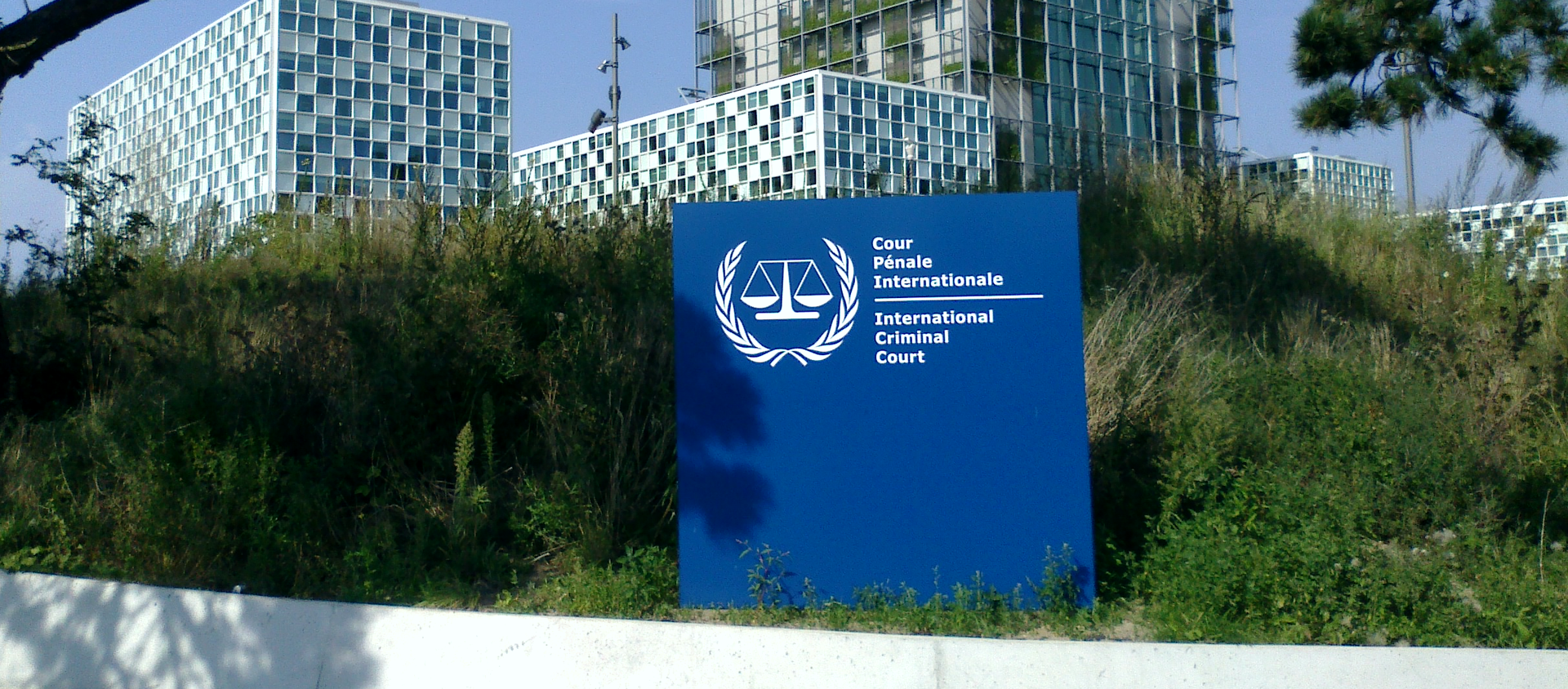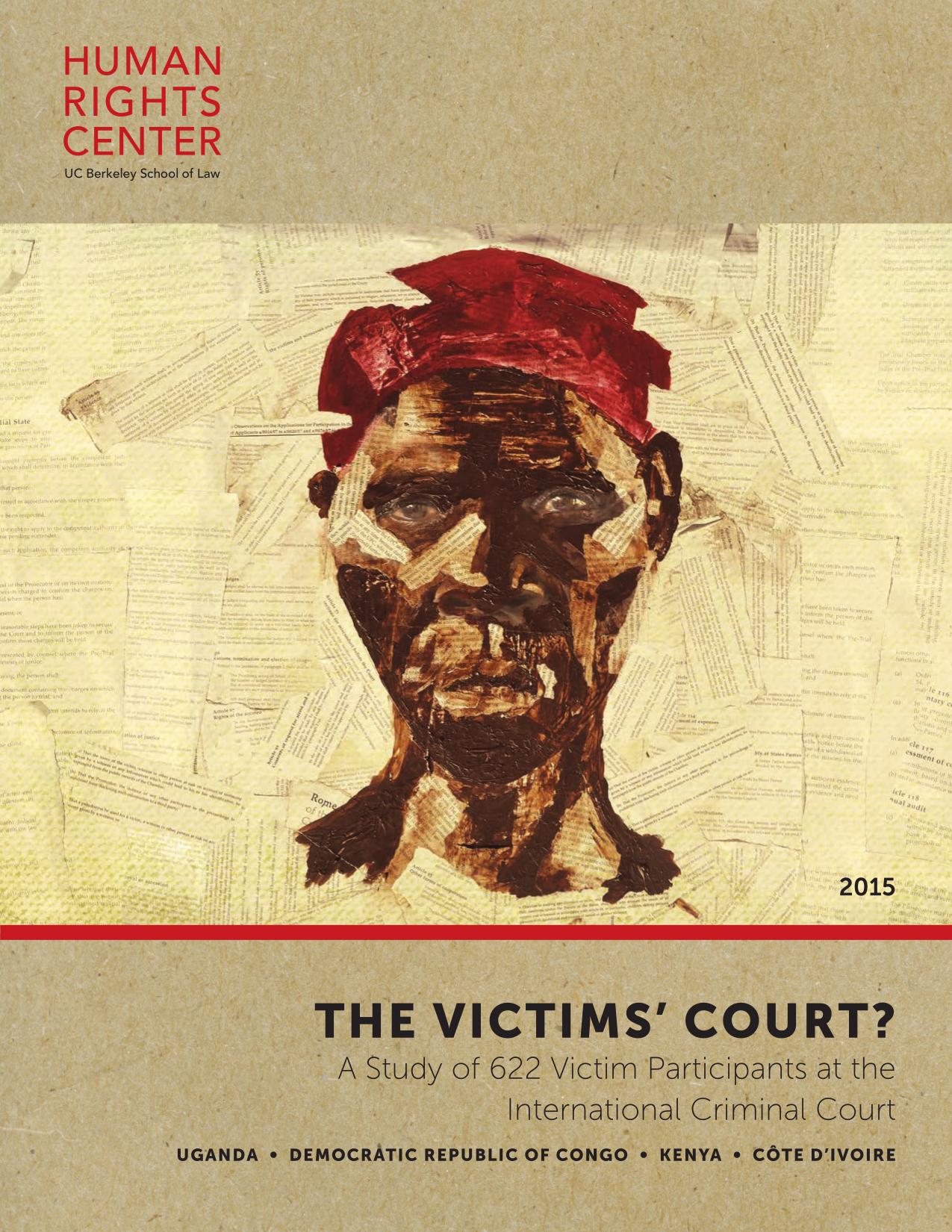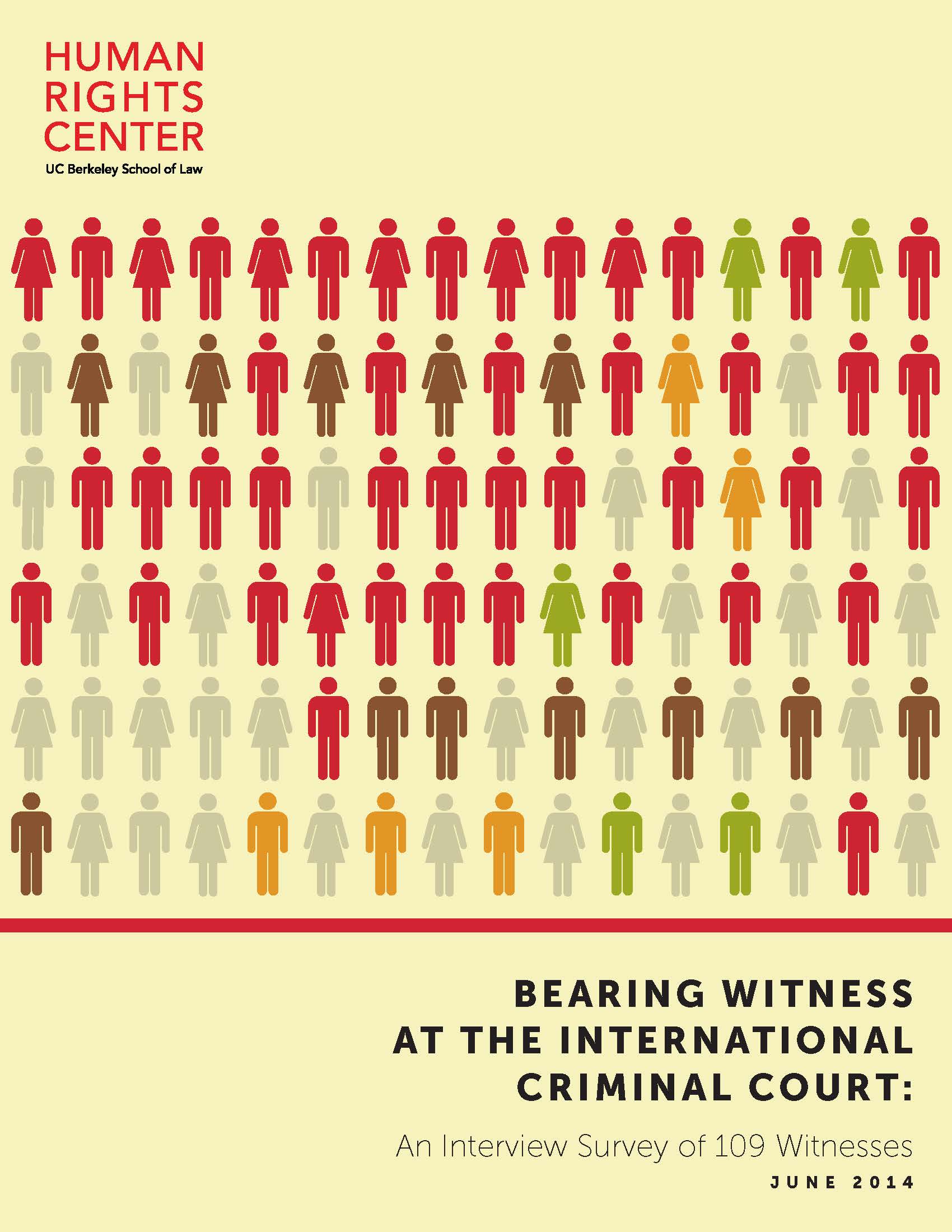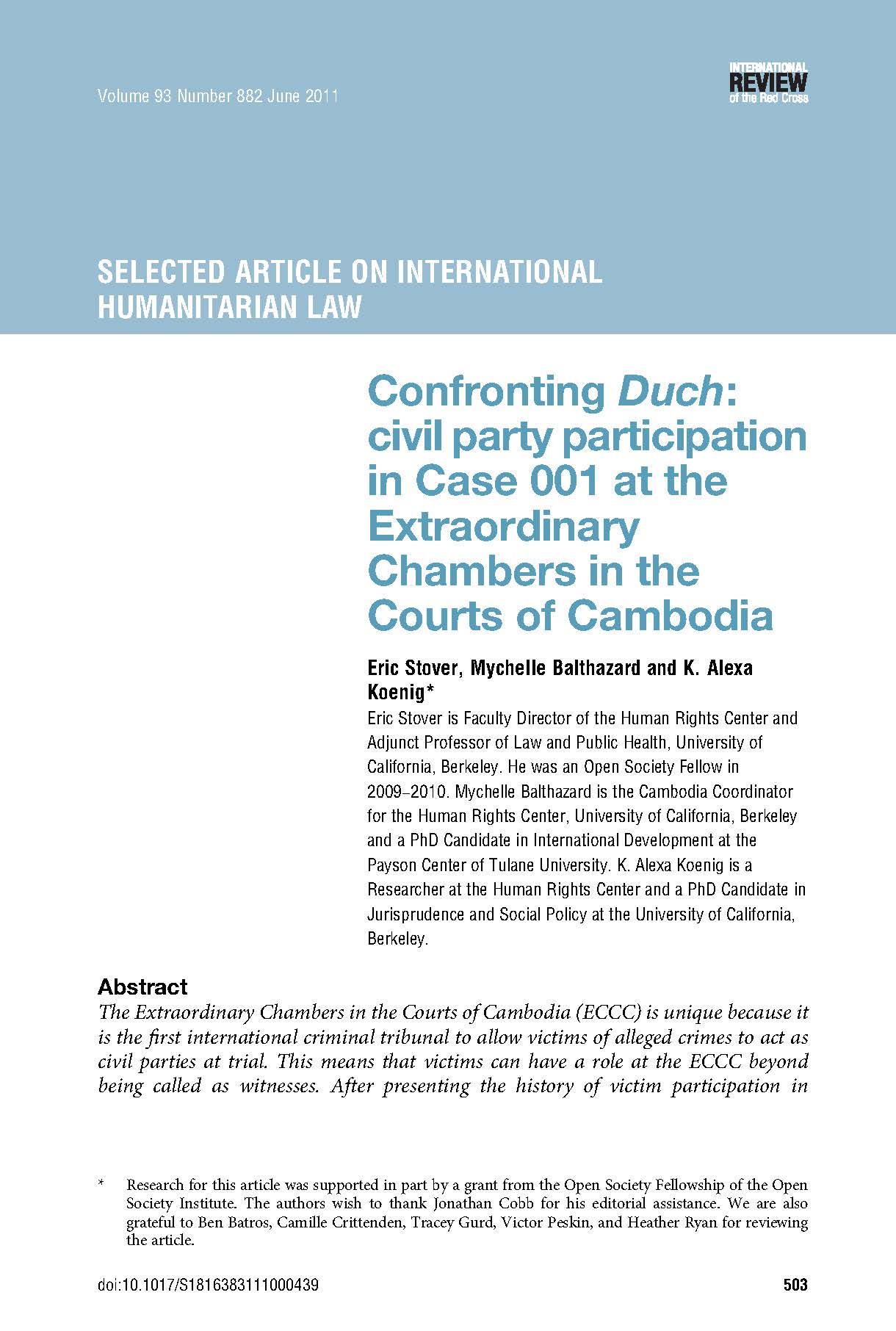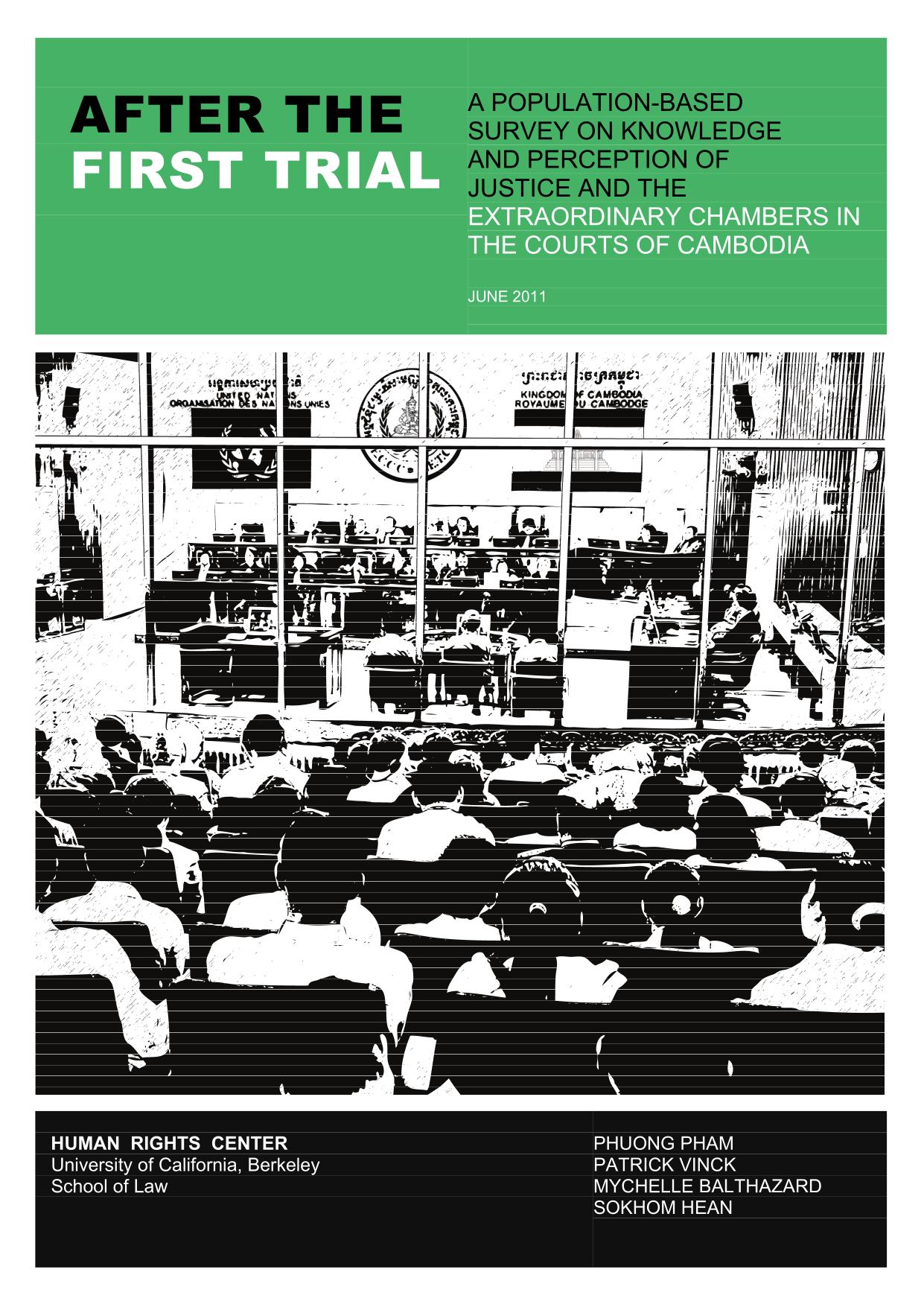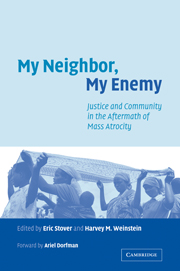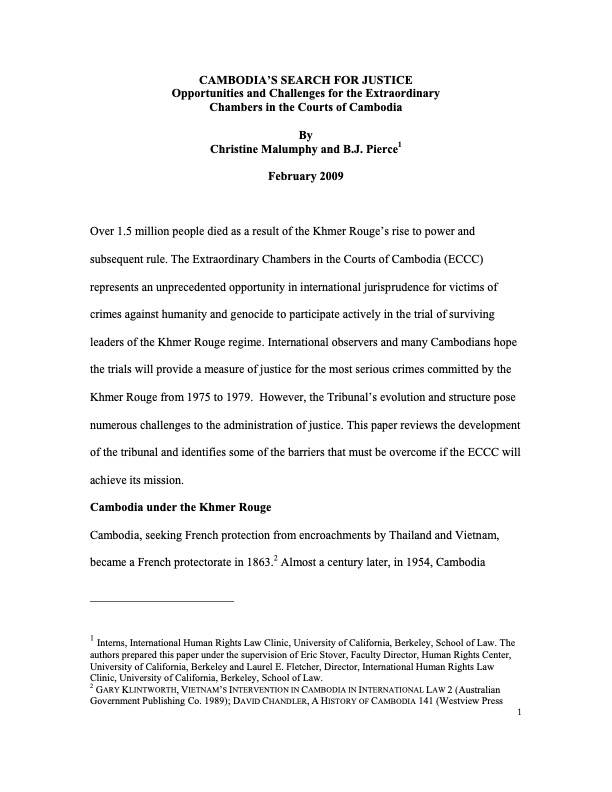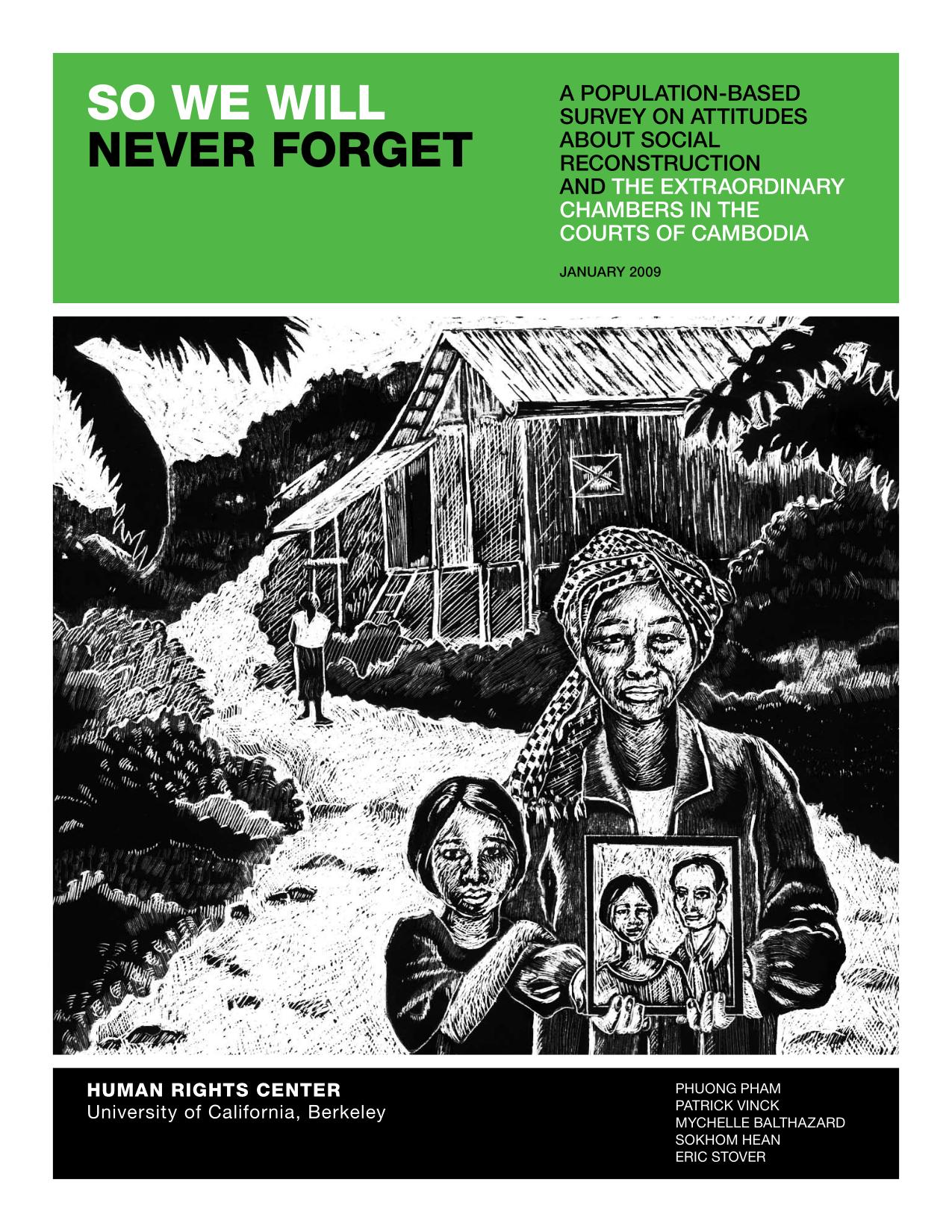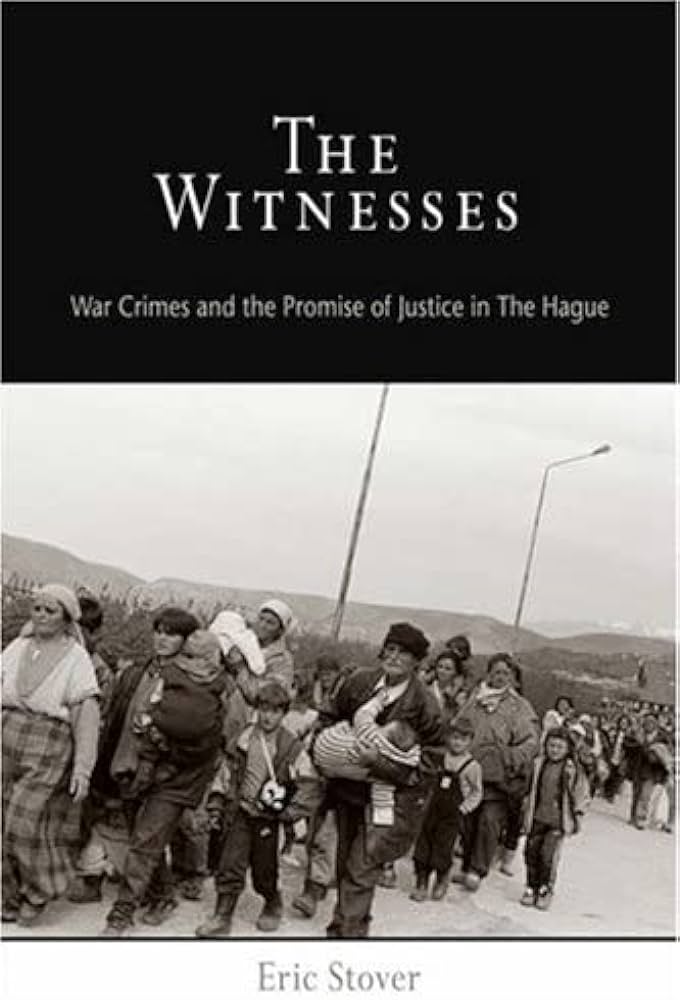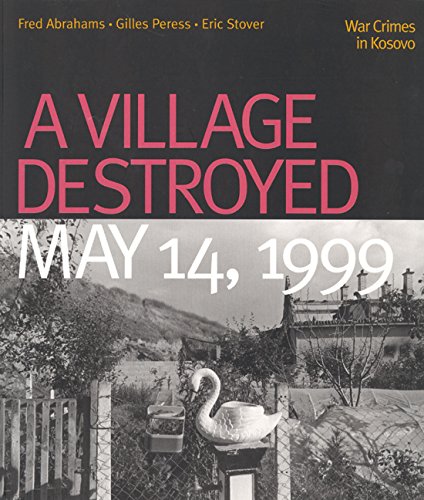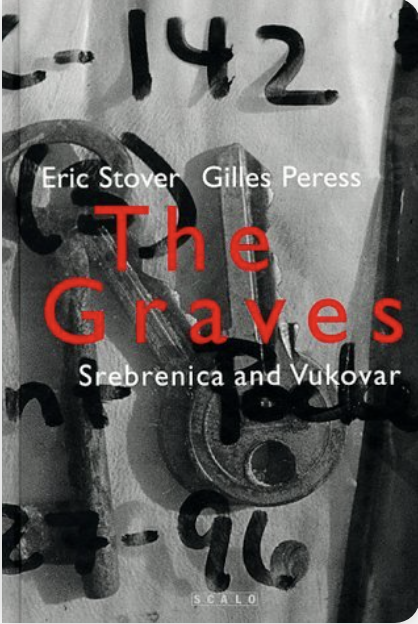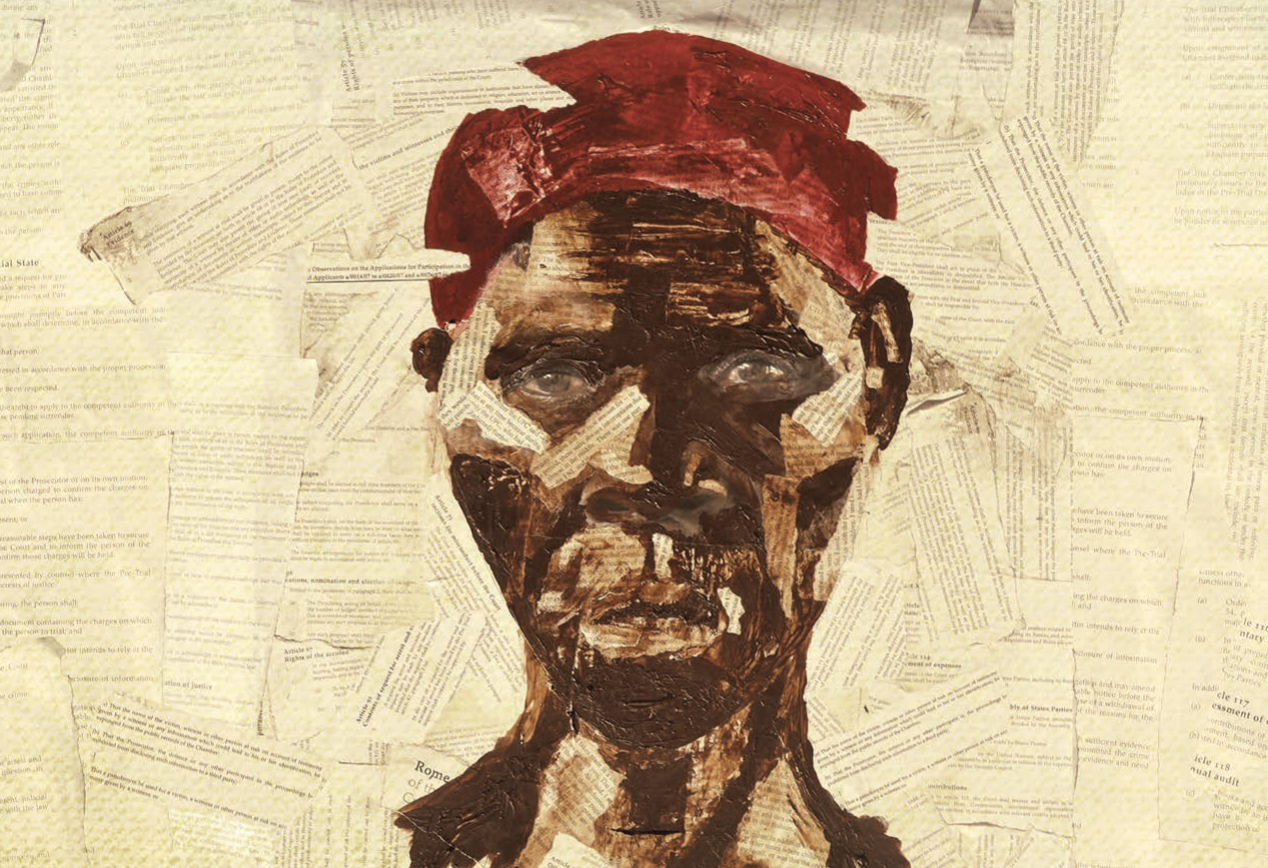
Witnesses are the lifeblood of international criminal trials. Many have survived mass killings, rape, torture, inhumane imprisonment, forced expulsion, and the destruction of their homes and villages. Testifying in a war crimes trial requires an extraordinary amount of courage, especially when perpetrators still walk the streets of their communities. Despite these risks, little was done to assess the efficacy and security of the programs and services for victims and witnesses at the International Criminal Court and national courts around the world. To address this gap, the Human Rights Center conducted multiple studies to provide feedback to courts about what victims and witnesses found most helpful and meaningful, and where improvements might be made. We worked closely with the ICC to build a first-of-its-kind survey, supported the court over a year of data collection, and then analyzed that data in a seminal report.
Left: Cover art for “The Victims’ Court: A Study of 622 Victim Participants at the International Criminal Court.” Participants hailed from Uganda, the Democratic Republic of Congo, Kenya, and Côte d’Ivoire. Cover by Stephen Smith Cody.
Parnters
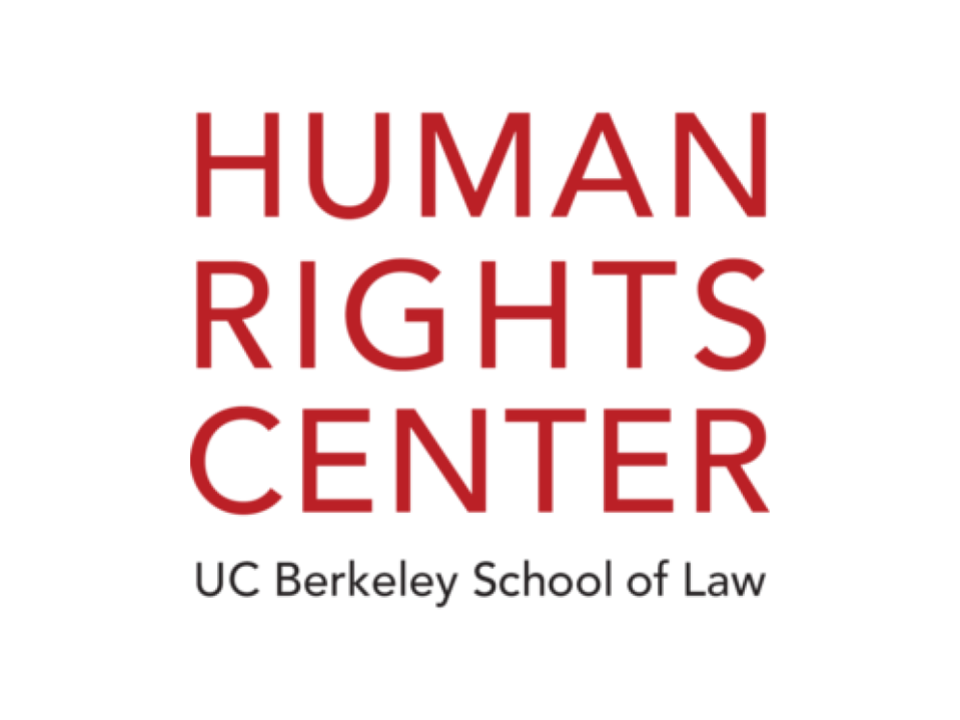
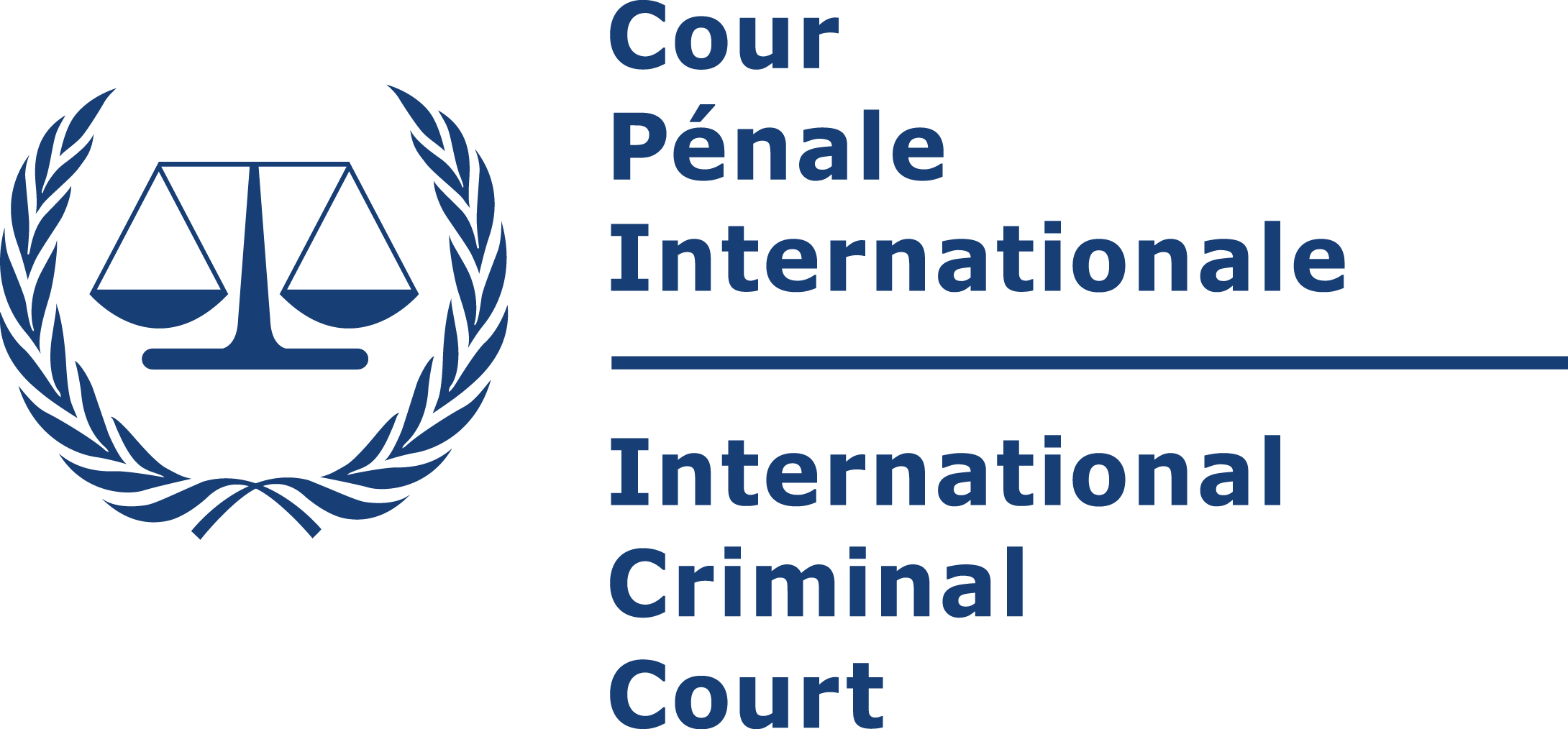
In 2013, the Victims and Witnesses Unit of the ICC requested support from HRC to help design qualitative and quantitative measures to evaluate the experience of witnesses in court proceedings and to provide analysis and recommendations for better meeting their needs. HRC designed and administered the survey, building on an interview instrument that was created for a study of victim-witnesses at the International Criminal Tribunal for the former Yugoslavia. HRC then created a database for storing interview data, and analyzed it. In 2014, HRC issued Bearing Witness at the International Criminal Court: An Interview Survey of 109 Witnesses — the world’s first survey of witnesses who have testified at the ICC. While our findings were mostly positive, we found that women were underrepresented and disproportionately used to testify about sexual violence, and we identified gaps in the ICC’s long-term protection of witnesses. We presented findings to the ICC and government representatives from around the world, offering data along with recommendations to improve witness handling. The ICC’s Victims Participation and Reparations Section further requested HRC to conduct a study of ICC victim participation in four countries where the ICC had initiated investigations and prosecutions of serious international crimes — Uganda, Democratic Republic of Congo, Kenya, and Côte d’Ivoire. In 2015, HRC released the multi-country study titled The Victims’ Court: A Study of 622 Victim Participants at the International Criminal Court at the Assembly of States Parties. The independent study found that the ICC had reached a critical juncture in its victim participation program, and included recommendations for the ICC and States Parties. HRC continues to work with and advise the ICC in matters relating to victims and witnesses.
News
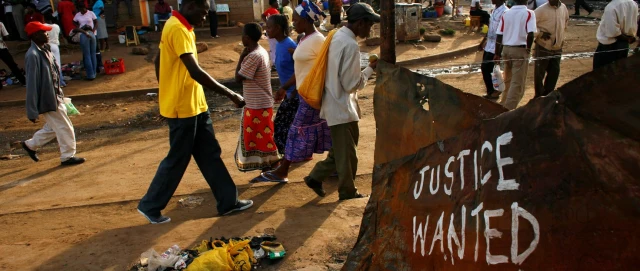
November 21, 2015
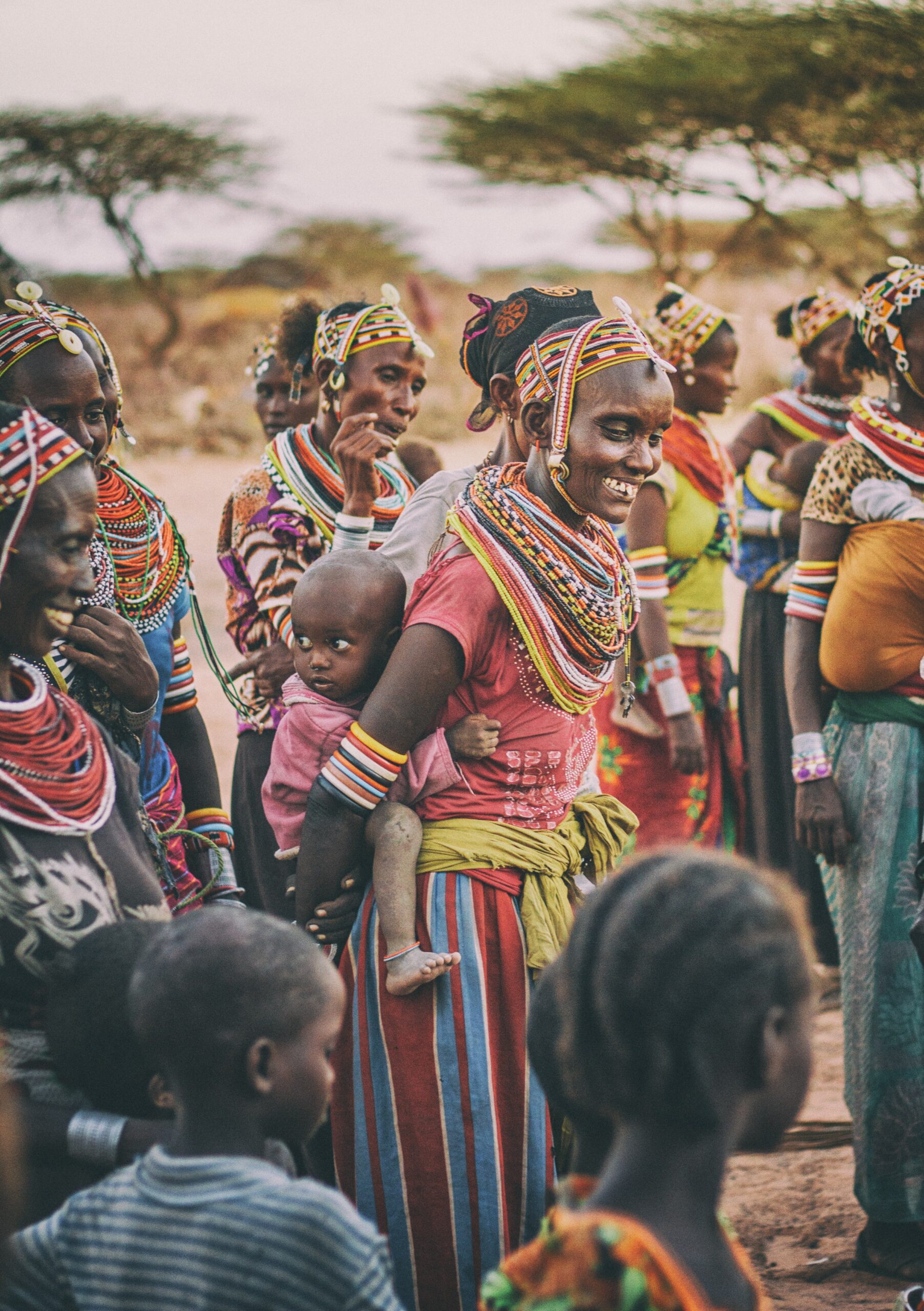
June 1, 2015
After Kenya, Lessons for Witness Protection
Image by Ian Macharia via Unsplash Commentary — International Criminal Justice Today: After Kenya, Lessons for Witness Protection, authored by Alexa Koenig,

June 7, 2010
Image by Damian Patkowski on Unsplash Commentary — LA Times: A Hopeful Future for Kenya, authored by Victor Peskin and Eric Stover.
